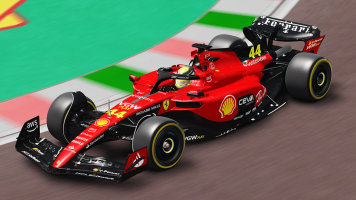Taru Rinne , was the first woman to achieve points in Grand Prix motorcycle racing.
Career
Karting
Rinne started her racing career in karting, competing against future Formula One drivers Mika Häkkinen, Mika Salo and Jyrki Järvilehto on multiple occasions. She won the Finnish Karting Championship in the 85cc class in 1979, ahead of Häkkinen. In 1980, she finished second behind Salo and ahead of Häkkinen who was fourth. She battled with Häkkinen again in 1981, and this time finished second in the series with Häkkinen becoming the champion. The next year Rinne won the series again and Häkkinen had to settle with second place. In 1983, she also finished first in the championship but was disqualified from the last race due to illegal fuel. Thus the title went to Häkkinen. She was also given a personal one-year ban from racing, which eventually ended her promising career in karting.
Road Racing
Despite her success on four wheels, Rinne decided to switch to motorcycles and debuted in the Road Racing World Championship, now known as MotoGP, in 1988.With her Honda bike she qualified second for the 125cc class GP at Hockenheim in 1989 and managed to lead the race for a while. She eventually finished seventh bettering her earlier eighth place at Assen.This was to remain her best ever result, as she got into a bad accident at Paul Ricard. While recovering from the accident, she got a letter from Bernie Ecclestone, who at the time decided which riders are allowed to compete in the series. The letter said that she is not qualified to compete next season. This ended her career at top-level and Rinne later said that the letter was the biggest disappointment of her life.
The saddest past of this story is that Rinne had already faced such misogyny before. Indeed, Rinne only took up motorcycle racing after she had been drummed out of four-wheel racing. Rinne dominated Finnish kart racing — winning two championships — embarrassing the sport male hierarchy at a time when, well, women were not supposed to beat men at sports long dominated by men. Having secured her third championship, she was summarily stripped of the title and banned from racing for using illegal fuel, an infraction typically considered so trivial that it usually results in just a few points removed. The runner-up who inherited Finland’s karting crown? Mika Häkkinen. Yes, that Mika Häkkinen, the one who ended up winning the Formula One title twice and is now ranked as the 15th greatest Formula One driver of all time by no less an authority than Autosport magazine.
So why hasn’t motorsports become more welcoming when even other traditionally male-dominated sports like boxing and mixed martial arts are now so legitimately female friendly? Well, I suspect it’s because the very top of motorsport is still dominated by the last remnants of an old boy’s club that still sees the primary role for females in motorsport as umbrella holder on pit row. The official who wrote Taru Rinne to tell her she was no longer welcome in Grand Prix motorcycle racing? According to Taru, you now know him as Formula One’s supremo. hmm yes, Bernie Ecclestone.
Sad story















